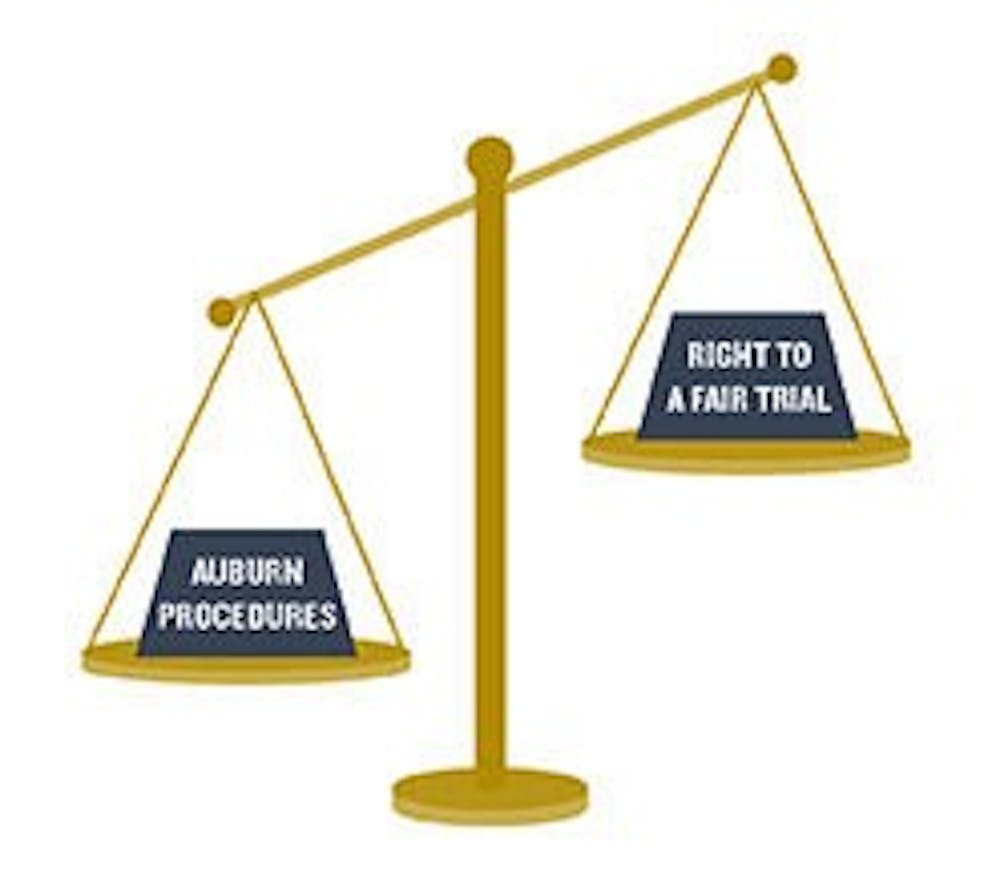After The Wall Street Journal dropped its investigative opinion piece about Auburn four months ago, we began receiving messages from our readers. Both emails and written letters came to our inboxes and desks, asking if we could confirm what WSJ wrote was true.
The story that ran on our front page is not about proving who is innocent and who is guilty. The purpose of this editorial is to take a look at the University's justice system and report what we found.
Did anything illegal happen within the justice system at Auburn University? No. In fact, the University seems to be exhausting itself in an attempt to meet all of the Title IX regulations set before it.
Did anything unethical happen? We don't think Auburn has purposefully wronged students - both those going before the student discipline committee and those serving on it. We do, however, think that in an effort to keep the image of the University clean, they have negotiated the rights to those accused of crimes and alleged victims that go through this system.
Our first request from the University is to abolish the practice of holding these hearings behind closed doors. We ask that one member of the student press be allowed access to report on student discipline hearings that would be considered a felony if tried in court. This provision would provide transparency among University administration, as well as hold committee members presiding over a case accountable.
If allowed to report on these hearings, we would adhere to the journalistic industry standard of keeping the names of alleged victims private.
We know that the allowance of a reporter into a student disciplinary hearing is not unheard of, as both the University of Alabama and the University of North Carolina make provisions for so within their respective codes of conduct.
This would not be a violation of the Family Education Rights and Privacy Act (a Federal law that protects students' privacy and educational records) as this act does not protect the identities of students found liable for a violent crime.
Our second request is for an overhaul of how students and faculty members who serve on the Student Discipline Committee are trained. We ask that all members have thorough understanding of legal proceedings before being allowed to hear a Student Discipline Case.
Another possible solution would be have an administrative law judge, who is a legally trained hearing officer for felony like charges, serve as the committee chair for any forthcoming infractions that would be considered a felony case in a court of law.
Lastly, we ask the University to do everything in its power to allow legal advisers to represent their clients in Student Discipline Hearings that are judging felony level infractions. We were baffled at the blatant lack of efficiency and fairness that ensues when defendants and plaintiffs are left to call and cross examine their own witnesses, present their own evidence and give their own opening and closing statements.
Even if this requires Alabama senators to pass a law protecting the right to counsel in Student Discipline settings, which has recently been the case in North Carolina, we think it is of the utmost importance that these steps be taken.
Overall, our requests are simple. All we ask is the University protect two of our most basic rights: the right to a fair trial and our freedom of speech.
Do you like this story? The Plainsman doesn't accept money from tuition or student fees, and we don't charge a subscription fee. But you can donate to support The Plainsman.





